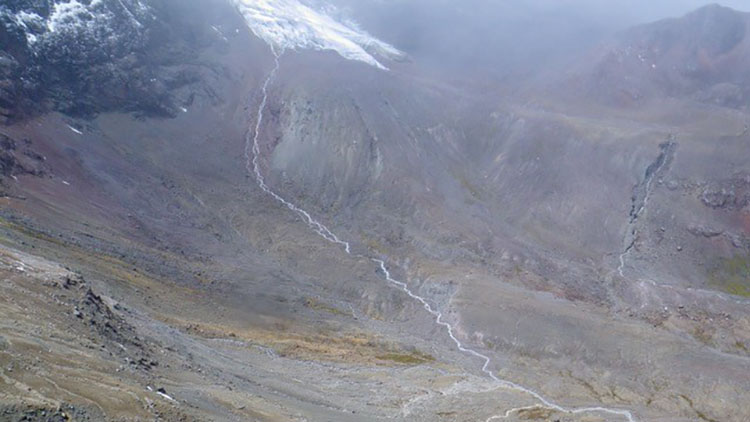Climate change affects everything, from plant life, water resources and sustaining human life as we know it.
Dr. Deb Finn, assistant professor of biology at Missouri State University, studies flowing-water environments. She’s been studying streams and animals that rely on glaciers for more than a decade.
Mighty glacier to puddle of water
Finn started studying glacier-melt streams in 2008. She had the opportunity to replicate a study from ten years prior.
“I had the exact GPS points of where the glacier started melting into the stream,” Finn said. “We got to where the glacier was supposed to be, and we thought, ‘Oh, no. We put the wrong datum into the GPS.’”
“But then it hit us right in the face. This is where the glacier was 10 years ago, and we can’t even see it now.”
Finn says the glacier had receded nearly 500 meters in 10 years.
Why does it matter?
Quito, the capital city of Ecuador, relies on glacier-fed streams for most of its water. No more glaciers might mean trouble for the big city.
The Nature Conservancy is helping the city of Quito study glacier-fed streams that supply the city. The Fund for the Protection of Water is a collaborative effort to monitor the status and ecological health of water resources on the surrounding high volcanic peaks.
Another effect of climate change is losing species. Once their climate or environment is gone, they have no place to go.
Finn was part of a team of researchers that are studying meltwater stoneflies. Meltwater stoneflies only live in very cold streams fed by melting ice.
“Can we understand how a streams fed by glacier runoff work before we lose them?” Finn said. “If the glaciers go away, that kind of stream is not there anymore.”
“A big question is, ‘When those streams go away, what are we losing?’” Finn added.
“Are we losing something big? Are we losing some sort of benefit or some sort of extra diversity? Are we losing an ecosystem type?”

